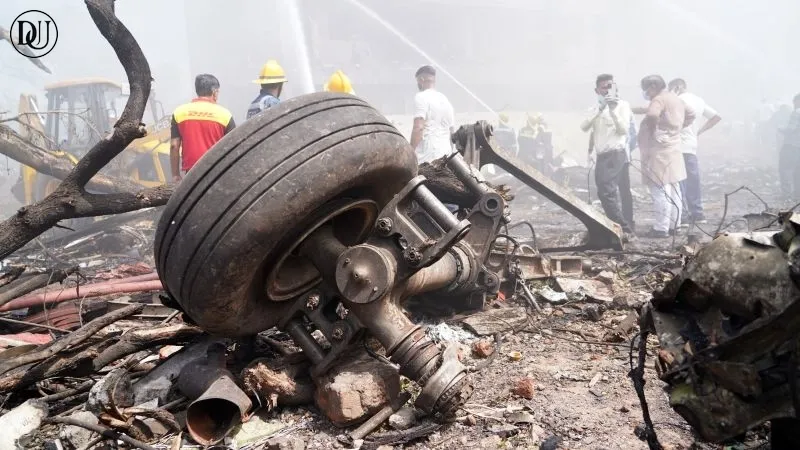The engine fuel supply on that Air India jet was apparently cut just before it crashed. It just feels… wrong, doesn't it? Like, this isn't some old prop plane, this was a modern Dreamliner, you know? According to the preliminary report from the Aircraft Accident Investigation Bureau, the fuel supply to the engines of AI 171 was basically cut off a mere three seconds after liftoff. And then the plane, a Boeing 787, crashed just 29 seconds later. Twenty-nine seconds. That’s barely any time to react, to do anything, really. CNN and Times of India both carried this, it’s just stunning to think about.
✈️ The Unsettling Discovery
Honestly, when you hear something like "fuel supply cut," your mind just races, right? It’s not just a malfunction, it sounds… intentional, or at least a catastrophic system failure that shouldn’t happen. This isn’t a small detail, it’s pretty much the core of the engine operation. You’d think there would be layers of redundancy, safety checks for something this fundamental. But here we are, with a preliminary report basically saying the engines were starved of fuel moments after getting airborne. It’s a chilling detail, puts a whole new spin on things.
🕰️ Timeline of a Tragedy
Just think about that timeline for a second. Three seconds after liftoff, fuel cut. Then less than half a minute later, the plane goes down. I mean, what could happen in that tiny window? Could the pilots have overridden it? Was it some kind of automated system error, a sensor gone haywire? It just feels incredibly fast, like, too fast for human intervention once that chain of events started. This whole thing makes you wonder about the precise sequence of events in that cockpit during those critical seconds. BBC News even reported that victims' families are demanding answers, and honestly, who could blame them?
🤔 Questions Swirling
This report opens up so many questions, you know? Was it a technical glitch, some kind of electrical fault that triggered the fuel cut-off? Or was there human input involved, an accidental flick of a switch, a miscommunication? I’ve heard about incidents where pilots have accidentally shut down engines, but usually, that’s on the ground or during a less critical phase of flight. To happen right after liftoff… that’s just unprecedented, in my experience, or at least highly unusual. The investigation has to be looking at every single data point from the flight recorders, every switch position, every conversation. They really need to reconstruct those moments precisely.
🫂 Families Seek Closure
It must be absolutely agonizing for the families. They’re not just grieving; now they have this added layer of confusion and, frankly, suspicion. When a crash is due to, say, clear weather issues or an obvious mechanical failure, it’s still horrific, but this "fuel cut" element… it just screams for a definitive explanation. They deserve to know exactly what happened, step by step, why their loved ones were on a plane that lost power moments into its flight. That’s the real human cost here, beyond the technicalities.
✈️ The Dreamliner Factor
And it was a Dreamliner, right? The Boeing 787. These planes are supposed to be among the most advanced, safest aircraft in the sky. They’re packed with sophisticated systems, fly-by-wire technology, all that jazz. For something this fundamental to go wrong on such a modern aircraft, it really shakes your confidence a bit. Not that I’m saying air travel isn’t safe, it still is, statistically. But it highlights that even with all the tech, there are still points of vulnerability, things that can just go sideways. It makes you think about how much we rely on these complex machines.
🔍 Beyond the Preliminary Report
This is just the preliminary report, remember? That means it’s based on initial findings, the black boxes, some eyewitness accounts maybe. The full, comprehensive report will take ages, like, months or even years. They'll probably analyze every tiny detail, run simulations, cross-reference everything. I’m not 100% sure but sometimes these preliminary findings can shift as more data comes in, but a detail like "fuel cut" is pretty concrete from flight data. You get the idea. It’s a long, painstaking process to get to the absolute truth, and the world—especially the victims' families—will be watching.










